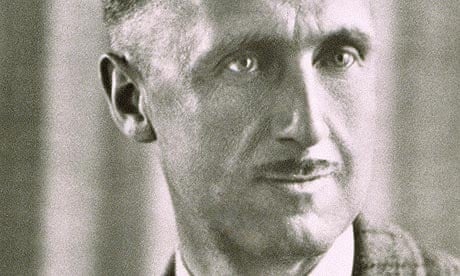We've had Pride and Prejudice and Zombies, we've had Queen Victoria: Demon Hunter – and it doesn't look like the vogue for literary mash-ups based on classic books is going to end any time soon. In June, Quirk Classics will publish Android Karenina, Leo Tolstoy's epic novel of adultery re-imagined by Ben H Winters as a steampunk tale involving cyborgs and space travel.
It may sound like a ludicrous idea, but Quirk has every reason to be confident. Pride and Prejudice and Zombies, in which Elizabeth Bennet spars with both haughty Mr Darcy and the flesh-eating undead, was so successful that it's spawned a prequel, Dawn of the Dreadfuls, and a graphic novel. A videogame is in development and Natalie Portman is reportedly set to star in the movie.
Purists may object to such vulgar exercises in franchise building, but others have welcomed the development, arguing it might lead to more people becoming interested in classic fiction even when it's stripped of monster trappings.
Hmmm. Leaving aside for now the obvious objection here – that such an argument is almost as far-fetched as the zombies themselves – the suggestion also prompts a question that will be familiar to genre fans of all stripes: why is it always assumed that proper literature will save us from ourselves?
Let's turn this around. Might rewriting classic science fiction and fantasy novels using elements of different genres open these up to a wider – or at least a different – readership? Here are my attempts: please add yours.
Nineteen Eighty-Four by George Orwell
Why people don't read it:
It's the glummest dystopia imaginable. "Imagine a boot stamping on a human face – forever," wrote Orwell, before going ahead and imagining for us.
The solution:
Rewrite it as a Mills and Boon romance. When raven-haired beauty Julia is attracted to cool and intellectual Winston, it seems that circumstances will forever keep them apart. Until, that is, Winston's delivered to the Ministry of Love where, after being tickled by small rodents, his unemotional façade breaks down and he realises he can't go on without Julia. The couple live happily ever after.
The Lord of the Rings by JRR Tolkien
Why people don't read it:
Leaving aside its sheer length and the portentous tone that Tolkien adopts as the trilogy nears its conclusion, it's a silly children's story, full of fey folk.
The solution:
Rewrite it as a misery memoir. Growing up in a remote village, Frodo Baggins is fond of his charismatic uncle, Bilbo, although somewhat wary of his relative's obsessive love of jewellery. Little does he realise that Bilbo ultimately plans to hand Frodo over to a motley band of people-traffickers, led by Gandalf, a stage hypnotist who convinces the unwary he's a wizard. A manly and not at all homoerotic friendship with a fellow abductee, Sam, gives Frodo the strength to carry on.
The Midwich Cuckoos by John Wyndham
Why people don't read it:
Brian Aldiss was rather unkind when he coined the phrase "cosy catastrophe" in relation to Wyndham's work, but you can see what he meant. Even Wyndham's eeriest book has something of the lazy Sunday afternoon read about it, as if the real menace is the prospect of going back to work tomorrow.
The solution:
Rewrite it as a boarding school novel. When the women of Midwich all fall pregnant following a particularly rambunctious cider festival, the villagers suddenly have a clutch of hard-to-handle sprogs on their hands. Inter-generational strife is rife. Luckily, the children all win scholarships and travel away to be educated together. Cue halcyon days of jolly japes, smuggled tuck and ganging up on posh kids.
The Player Of Games by Iain M Banks
Why people don't read it:
The Culture novels reveal Banks at his geekiest. The game of Azad, central to Player of Games, is so complex that it reflects and reveals the philosophical and political outlook of competitors. This sounds clever and cool, but it also sounds mightily like an intellectually turbocharged version of Dungeons & Dragons.
The solution:
Rewrite it as a golf novel. Jernau Morat Gurgeh, Tiger to his mates, has the greatest swing in the known universe, but he's bored, bored, bored of winning majors. Then he's approached to compete in a mysterious tournament on a distant planet – or possibly private island if that seems too sci-fi. Gurgeh's very life, it soon becomes clear, will depend on his putting prowess.

Comments (…)
Sign in or create your Guardian account to join the discussion